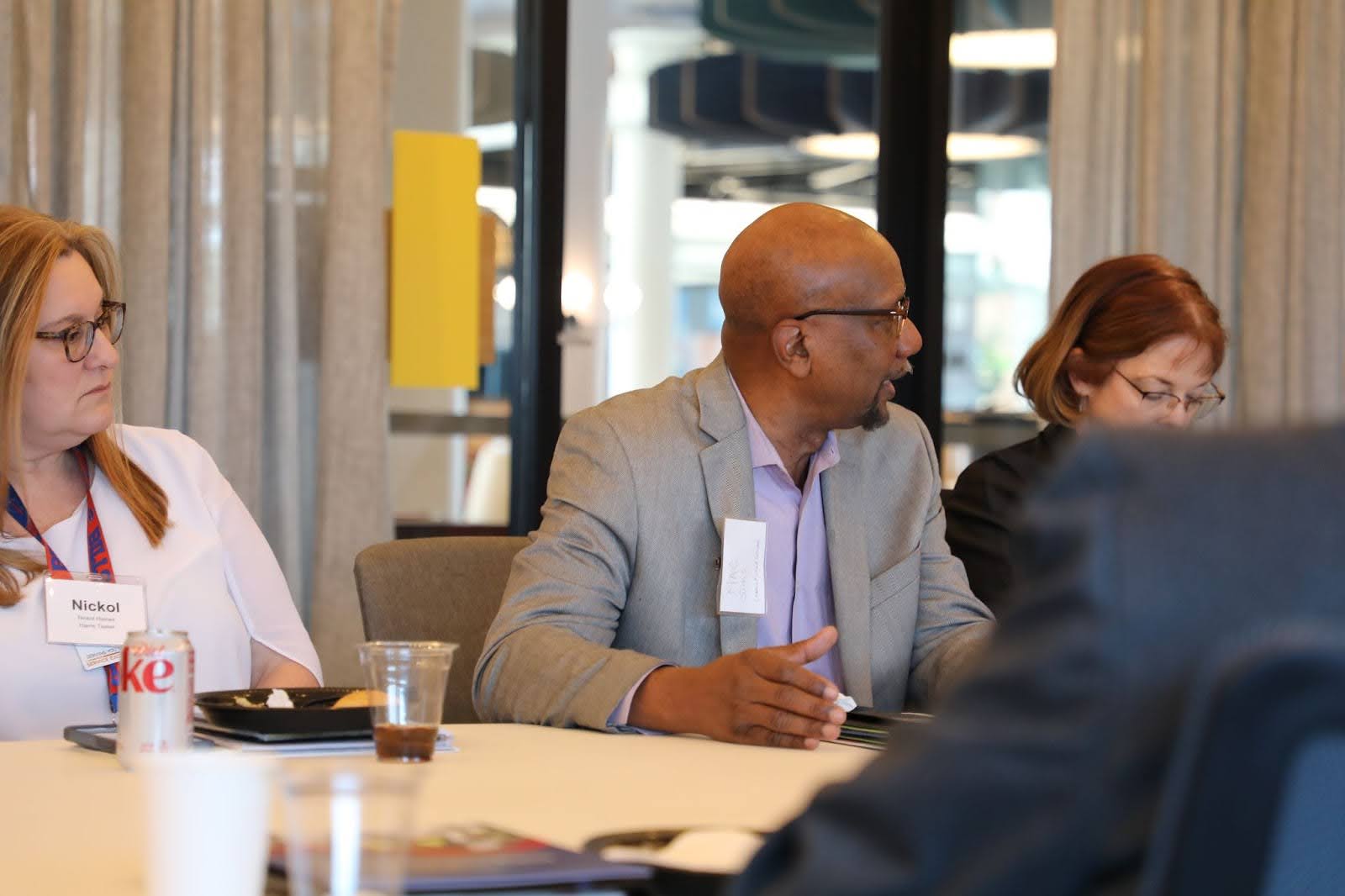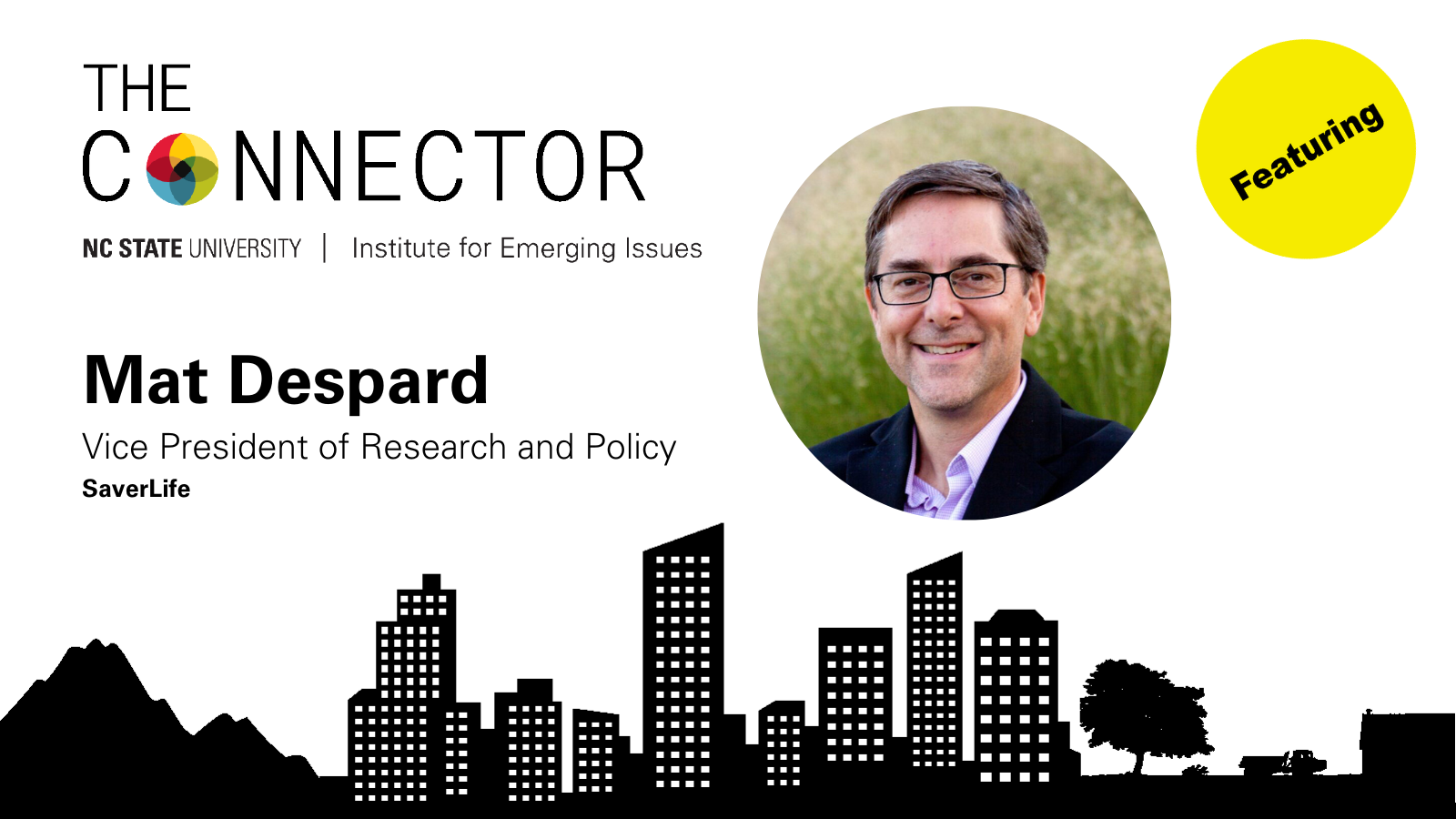Director’s Log | August 2018

My wife and I live in a house on a hill. Our relationship with the couple two doors up may be a lot like the one you have with your neighbors. We nod politely to each other when we pass, but we’re a little fuzzy on their names; don’t know their children, their interests, their habits. They are probably lovely people; they may be brilliant or funny or lonely: we don’t know.
We have a different relationship with the widower next door. We borrow tools from him. We put the paper on his front porch every morning (and if we sleep in, he does the same for us). A couple of years ago, we did a “beer of the month” challenge with him, challenging each other to try new brews. He’s a retired plant scientist and gives us advice. We invite him over to dinner from time to time. He’s a surrogate grandparent to our children. Occasionally, when we both get stuck at work, we ask him to take our dog for a spin. And three years ago, when he decided he wanted to jump out of a plane for his 90th birthday, we worked with his children to convince him to try our zipline instead (this year, at 93, he jumped out of the danged plane anyway).
How well do you know your neighbors? If you’re like most of us, not very well: just 44% of us report talking with our neighbors “frequently;” only 8% report working with a neighbor on a project. We’re just not as neighborly as we used to be.
A couple of months ago, on an episode of First in Future, I was talking to Duke Energy’s Amy Strecker about the street where she lives. In her neighborhood, she said, people have potlucks. They sit outside and talk to each other. They take in each other’s packages and walk each other’s dogs. They visit with each other’s kids and mourn each other’s losses.
Then I asked her where someone should start if they wanted a neighborhood like hers. “Bake a dozen cookies,” she said, “Then knock on your neighbor’s door.”
Next month’s Emerging Issues Forum, ReCONNECT to Community (September 17 in Asheville — REGISTER!), kicks off a three-year effort to look for ways to build new relationships with our neighbors – next door, around the corner, across town – to make the places we live stronger, more united, and better able to address big challenges. We promise the Forum will be a day of rich conversation, challenging ideas and simple, actionable strategies you can start using immediately to reconnect your community. You’ll get to hear from insightful leaders who are thinking about this “reconnection” question. And you’ll get to hear from communities that have already been there and are doing just that.
Research shows that communities with more “social capital” – more people in formal and informal associations with each other, more shared exercise or recreational space, more people who care enough to vote – are also more successful economically. And it makes sense. Most people find jobs, or new jobs, not through job boards, but through networking. When times are tough, having a neighbor to call on to watch the house or jump in with child or elder care or lend a car makes a huge difference. If you want your community to work, you will want to make sure your neighbor is able to fully participate. In communities with higher social capital, unemployment is lower.
As part of a new tool we’ll be releasing next week, called ReCONNECT County Snapshots, we’ve looked at where every county in North Carolina stands along a series of “reconnection” indicators. IEI’s Alicia James and Paul Nolan developed the tool, choosing data that is publically available in every county. Then they depicted each county’s special strengths on a grid. This “snapshot” shows where the data suggest your county stands in each of five reconnection categories.
We’ve taken care to choose indicators that tell you something about your county, data points you can change with intentional effort, but we’ll be asking for your feedback to make them better. Think of this as “ReCONNECT County Snapshots 1.0.” We hope you’ll use the tool to begin discussions and start taking action that will make your community a better place to live, work and play. Look for ReCONNECT County Snapshots on our website next week!
There is no official data on the impact of “plates of cookies delivered to neighbors” — we hope you’ll do that because it will bring you closer to your neighbor. But it is easy to imagine a “great cookie ripple” up and down streets or across communities, and a ripple of reconnection breaking out once you bring your new ideas home from the September 17 Forum. We REALLY hope to see you in September!
- Categories:


